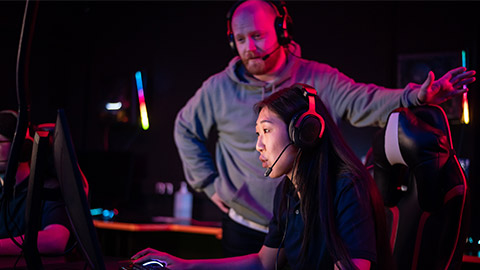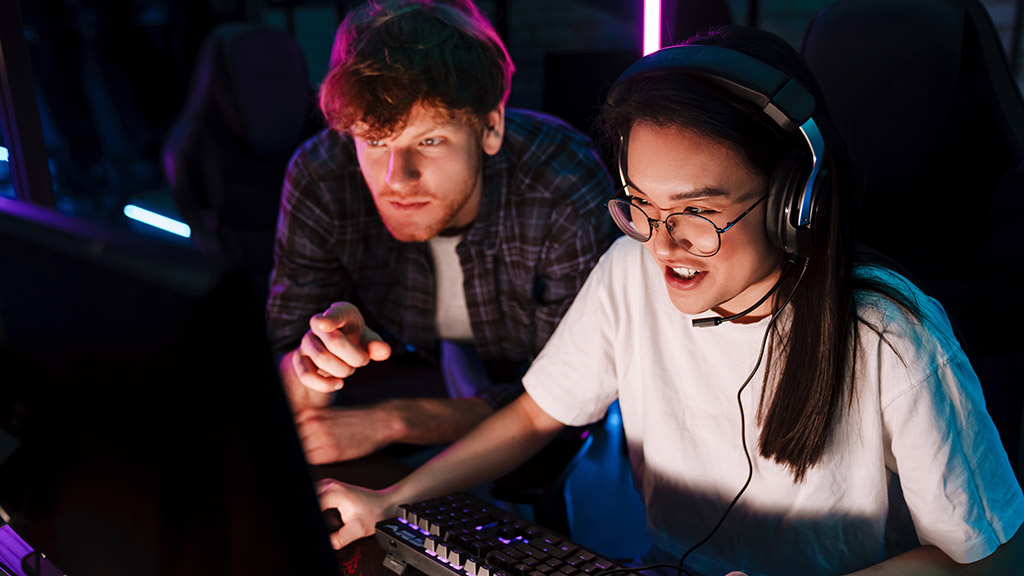The secret is to work less as individuals and more as a team. As a coach, I play not my eleven best, but my best elevenKnute Rockne
A coach and a player are two different sides of the same coin. They work for the same purpose: working their hardest for team improvement. And while they have other skills and responsibilities, they share a few.
| Coach and Player Skills and Responsibilities | ||
|---|---|---|
| Similarities | Differences | |
| Coach and Player both: | Coach | Player |
|
|
|
We must understand that while coaches and players may share the same background, they bring different values.
Players tend to be a young talent on the rise. They have the time to polish their mental and physical skills. Ideally, the player will process information and make decisions faster. The coach is responsible for instructing the players on how to play the game efficiently and effectively, giving them all the possible options and outcomes of their decisions. The coach will often use their experience and knowledge to give the team an edge in a match. Consider the following analogy, the player is strong and fast, and a coach should be intelligent and wise.
To everyone's surprise, it is not eSports terminology or sports terminology.
It originated from studying at Oxford University around 1830. Did you know it was slang for tutors who helped "carry" other students during exams? Coaching is a type of mentoring, sponsoring and teaching. It is a vow that one makes to help someone reach their potential to make them the best version of themselves.
If you like this noble profession, ensure to leave your ego behind. Coaches usually sacrifice everything they have for their students. Their goal is to shape people to become their best selves.
Watch: What Makes A Great Coach? Tony Robbins on leading & inspiring others (5:21) minutes
Knowledge Check Activity

Coaching in eSports is quite similar to any other type of sport. eSports is a growing industry, and with that comes a younger demographic, but what does this mean when it comes to coaching?
| Pros | Cons |
|---|---|
|
|
Most people's careers in eSports start remotely, meaning they interact from a distance and pushing them to interact with others may be hard to accomplish. You may have quite the battle on your hands, but as a coach, it is all part of the job!
Watch: Anecdote (2.17 minutes)
Types of coaches
Coaching comes in various forms. These include the following:
- Head coach
- Strategic coach
- Positional coach
- Performance coach.
Let's look at these in further detail.
Head coach
A head coach oversees and manages a professional gaming team and is the face of the team's identity and performance.
Head coaches have three sources of information given to them. These include the following.
- Staff information - objective Data that reflects the performance of the team.
- Team Information - trusting the judgement of your players and believing in them.
- Inner information - own experience and critical judgement.
Head coaches will then analyse this information and use it to the team's advantage by elaborating strategies and making decisions that will be reflected in the team gameplay.
Coaching comes with a warning, and coaches will always be accountable for all of their team's results. Therefore it is a highly stressful position but one of the most rewarding in accomplishment and impact of decision-making. You already know the phrase…
With great power, comes great responsibilityUncle Ben, Spiderman
Strategic
The strategic coach is a part of the head coach's responsibilities but can be done separately at the organisation's discretion.
As the name suggests, strategic coaches are responsible for the strategy behind the team's decision-making inside the game. Their job is to learn and grasp as much theoretical knowledge as possible and feed this information to either the players or the head coach.
Positional
Positional coaches are usually veterans or well-known players that excel in one particular aspect of the game that can be taught to the new coming talent.
They are instructed to teach players specifically about a role that they are familiar with.
Performance coach
Performance coaches are the motivators of a team. They are the keepers of quality, friendly team dynamics and the players' mental well-being. Players tend to open up and feel comfortable around them and interact with no pressure or fear, disclosing essential insights that could help modify behaviours in players for better performance.
Knowledge Check Activity
